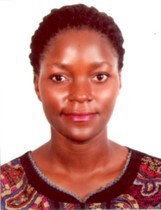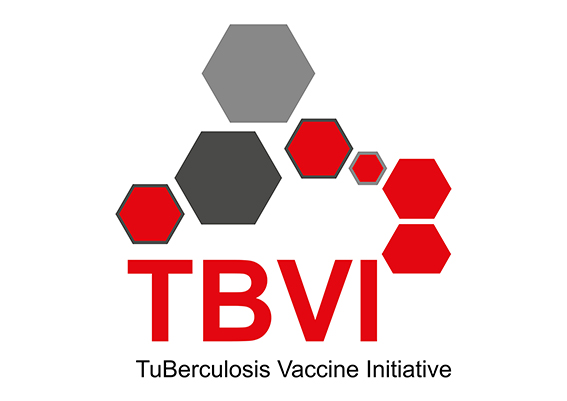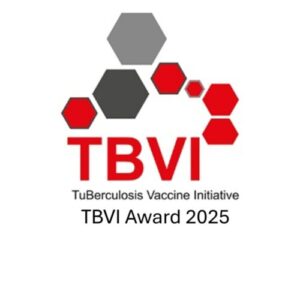With the TBVI Award, TBVI encourages promising scientists and rewards their remarkable contributions to tuberculosis (TB) vaccine research and development, by offering them the opportunity to present their work at the TBVI symposium that takes place 28-29 January 2025 in Les Diablerets. This annual meeting is dedicated to the exchange of knowledge and the fostering of new initiatives and brings together researchers, policy makers and funders from across the world.
We are very pleased to announce the two winners of the TBVI Award 2025:
 Beatrice Nassanga: Beactrice is a final year PhD student at Makerere University, Uganda, and the University of Oxford. She also works as a research assistant in the tuberculosis (TB) vaccines groups of Prof Helen McShane and Associate Prof Rachel Tanner, University of Oxford. She has great interest in the study of TB, a disease which represents a major burden in Africa and Asia. Se is particularly interested in investigating the problem of the waning efficacy of TB vaccines and contributing to the development of a more effective TB vaccine. For her PhD project, she’s investigating the host and microbial factors influencing the immunogenicity of BCG revaccination and the candidate TB vaccine combination ChAdOx1 85A – MVA85A. She is also working on several related projects, including developing immune organoids for high-throughput immunogenicity screening of novel TB vaccine candidates. She previously attained an MSc in Immunology and Clinical Microbiology at Makerere University in 2019, during which she investigated T cell responses (phenotype and polyfunctionality) in Mycobacterium tuberculosis (MTB) and Non-tuberculous Mycobacteria (NTM) in the sensitised and un-sensitised Ugandan population. This followed challenges in distinguishing NTM sensitisation from MTB with the conventional Tuberculin Skin Test and Interferon gamma release assays, and the discovery of unique NTM T cell epitopes. She has a Bachelor’s degree in Biomedical Laboratory Technology also attained at Makerere University in 2014. From 2014 to 2016, she worked as a laboratory technologist on several TB and measles vaccine related research projects at MRC/UVRI and LSHTM Uganda Research Unit.
Beatrice Nassanga: Beactrice is a final year PhD student at Makerere University, Uganda, and the University of Oxford. She also works as a research assistant in the tuberculosis (TB) vaccines groups of Prof Helen McShane and Associate Prof Rachel Tanner, University of Oxford. She has great interest in the study of TB, a disease which represents a major burden in Africa and Asia. Se is particularly interested in investigating the problem of the waning efficacy of TB vaccines and contributing to the development of a more effective TB vaccine. For her PhD project, she’s investigating the host and microbial factors influencing the immunogenicity of BCG revaccination and the candidate TB vaccine combination ChAdOx1 85A – MVA85A. She is also working on several related projects, including developing immune organoids for high-throughput immunogenicity screening of novel TB vaccine candidates. She previously attained an MSc in Immunology and Clinical Microbiology at Makerere University in 2019, during which she investigated T cell responses (phenotype and polyfunctionality) in Mycobacterium tuberculosis (MTB) and Non-tuberculous Mycobacteria (NTM) in the sensitised and un-sensitised Ugandan population. This followed challenges in distinguishing NTM sensitisation from MTB with the conventional Tuberculin Skin Test and Interferon gamma release assays, and the discovery of unique NTM T cell epitopes. She has a Bachelor’s degree in Biomedical Laboratory Technology also attained at Makerere University in 2014. From 2014 to 2016, she worked as a laboratory technologist on several TB and measles vaccine related research projects at MRC/UVRI and LSHTM Uganda Research Unit.
 Andrew Simonson: Andrew is a postdoctoral scholar and T32 fellow in Immunology of Infectious Disease at the University of Pittsburgh School of Medicine. Andrew completed his PhD (Bioengineering) at Pennsylvania State University in 2021, where he designed a biomimetic antimycobacterial peptide that selectively lysed mycobacterial membranes without killing mammalian cells. He combined this compound with traditional small-molecule antibiotics in macrophage-targeted microparticles for synergistic delivery directly to the lung. Andrew then transitioned to his current position at the University of Pittsburgh, where he works with Dr. JoAnne Flynn to study the protective mechanisms against TB. Since joining the TB Research Group, he has focused on several models of immunological protection against Mtb infection, including vaccination via intravenous BCG and concomitant immunity via re-infection. In these models, he has experimentally evaluated CD4+ and CD8+ lymphocyte-mediated mechanisms of protection and whether they align with previously established correlates of protection. Through this research, Andrew has sought to understand the differences in the cellular sources of protection and containment between natural and vaccine-induced immunity. He has also contributed to projects studying immunologically naïve models of acute Mtb infection, auxotrophic BCG strains, and heterologous reinfection across Mtb lineages. The primary goal of Andrew’s research is to inform future vaccine candidate design with better understanding of these mechanisms, thereby leading to enhanced protective efficacy and innovative screening methods for biomarkers.
Andrew Simonson: Andrew is a postdoctoral scholar and T32 fellow in Immunology of Infectious Disease at the University of Pittsburgh School of Medicine. Andrew completed his PhD (Bioengineering) at Pennsylvania State University in 2021, where he designed a biomimetic antimycobacterial peptide that selectively lysed mycobacterial membranes without killing mammalian cells. He combined this compound with traditional small-molecule antibiotics in macrophage-targeted microparticles for synergistic delivery directly to the lung. Andrew then transitioned to his current position at the University of Pittsburgh, where he works with Dr. JoAnne Flynn to study the protective mechanisms against TB. Since joining the TB Research Group, he has focused on several models of immunological protection against Mtb infection, including vaccination via intravenous BCG and concomitant immunity via re-infection. In these models, he has experimentally evaluated CD4+ and CD8+ lymphocyte-mediated mechanisms of protection and whether they align with previously established correlates of protection. Through this research, Andrew has sought to understand the differences in the cellular sources of protection and containment between natural and vaccine-induced immunity. He has also contributed to projects studying immunologically naïve models of acute Mtb infection, auxotrophic BCG strains, and heterologous reinfection across Mtb lineages. The primary goal of Andrew’s research is to inform future vaccine candidate design with better understanding of these mechanisms, thereby leading to enhanced protective efficacy and innovative screening methods for biomarkers.
Both winners are outstanding scientists at the start of their careers, with ambitious goals in the field of research and development of TB vaccines. The award enables them to showcase their work and engage with researchers, developers, funders and policy makers. Thus, TBVI aims to advance the careers of a next generation of researchers who will contribute to the discovery, development and implementation of new, safe, effective and affordable TB vaccines, reducing the burden of this disruptive disease.


